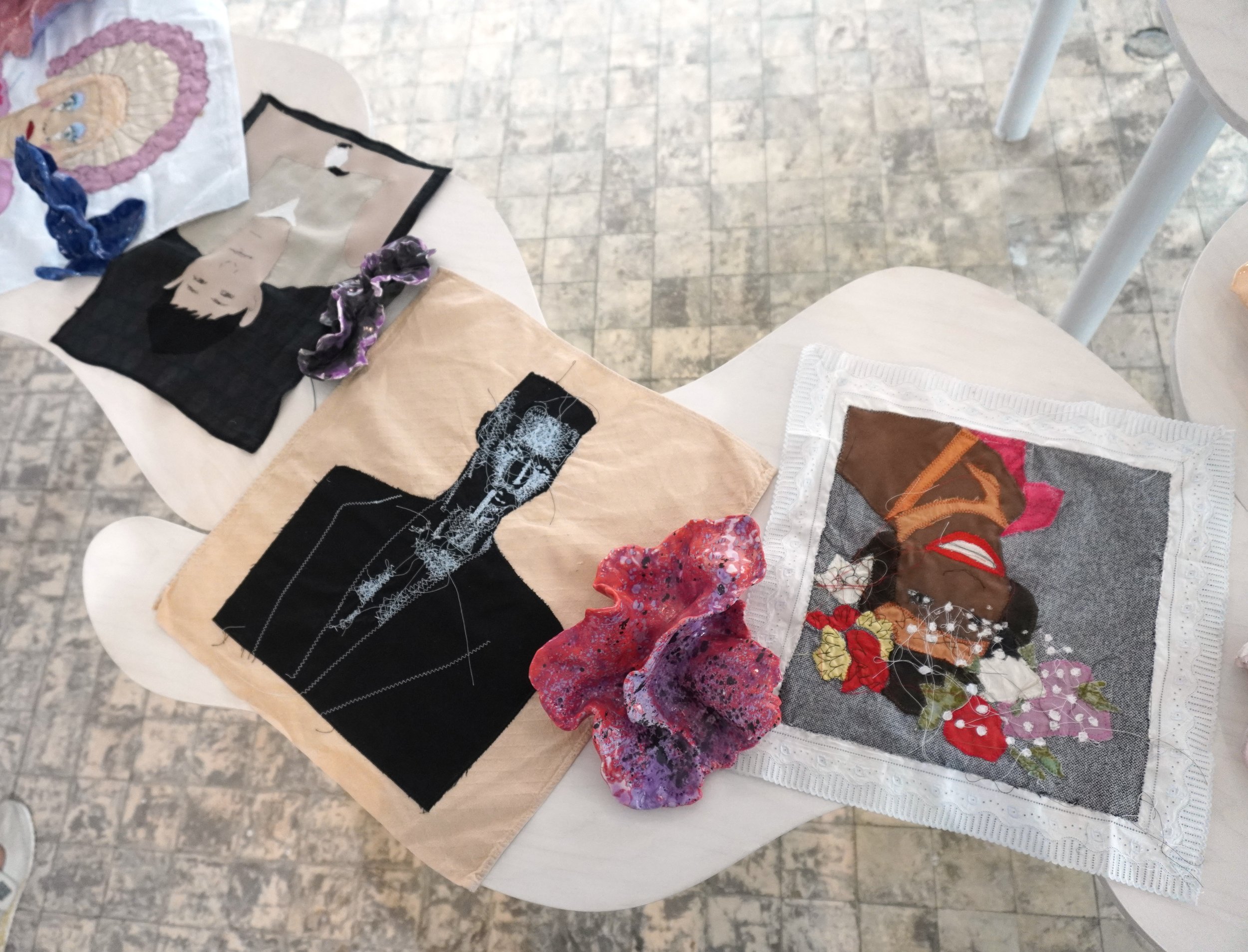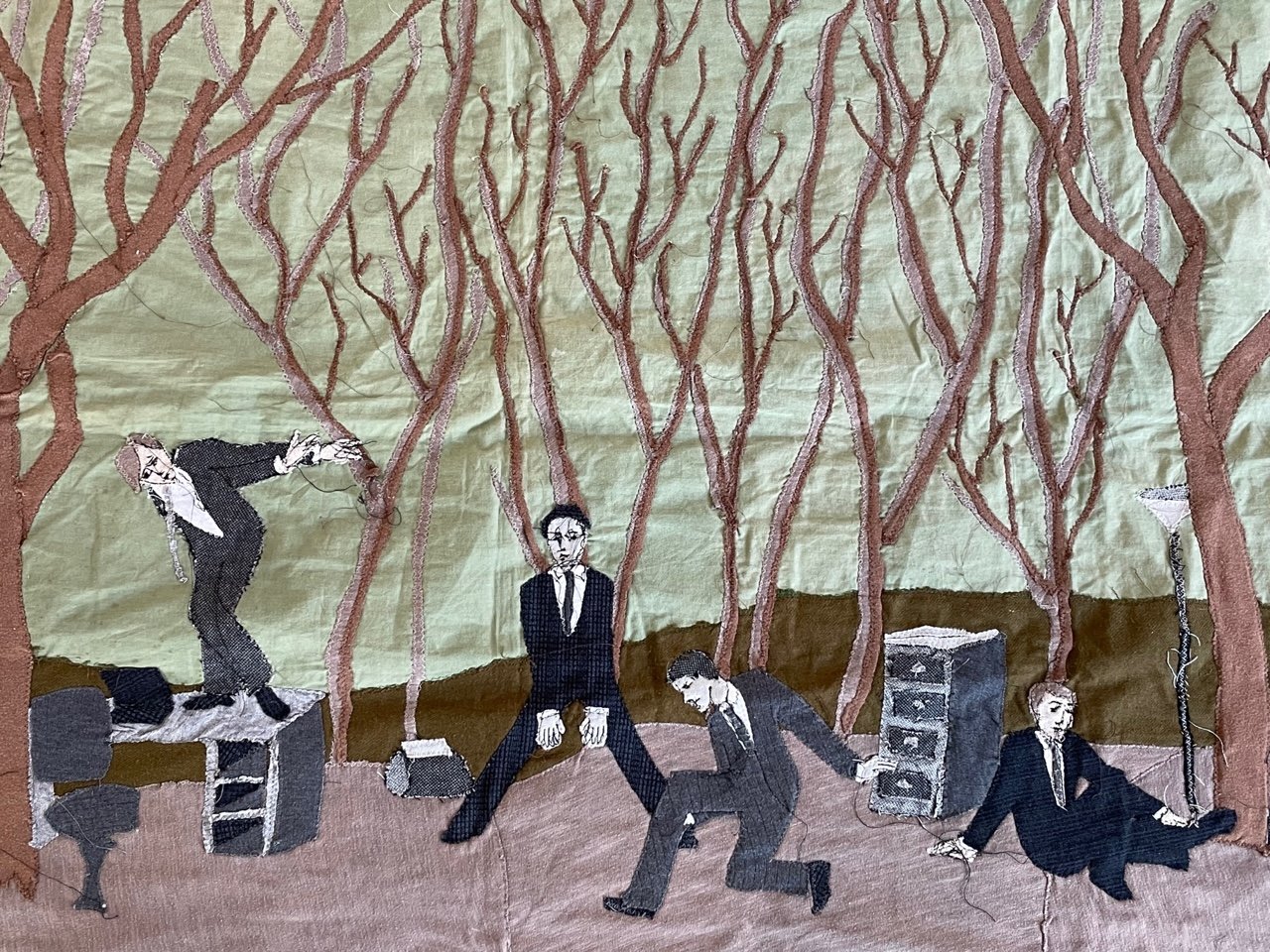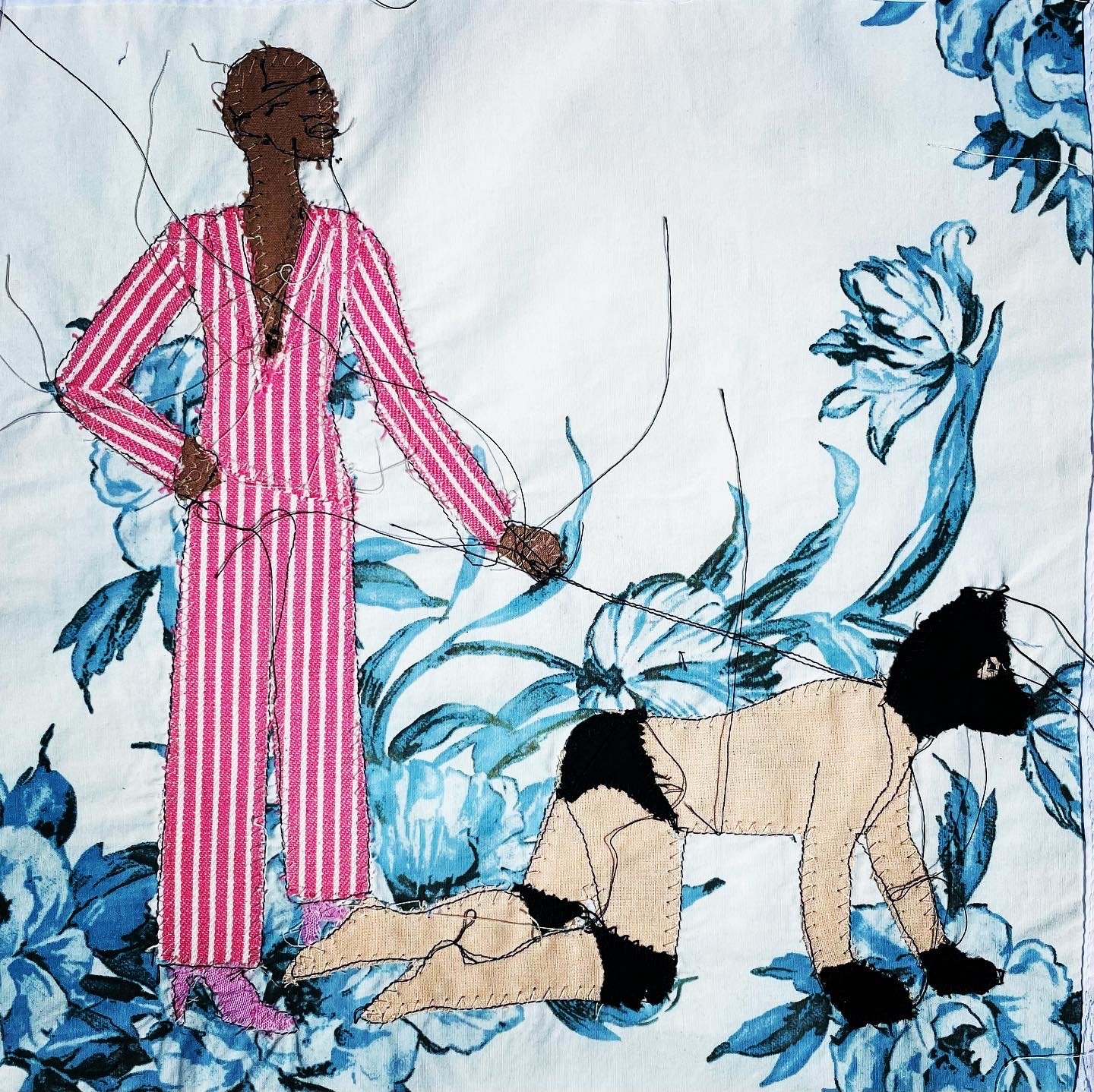
ALINA KOPYTSIA | PLAINS OF AMBIGUITY 29 April-25 May 2022
Zurich-based Ukrainian artist Alina Kopytsia (*1983) creative process incorporates traditional crafts like sewing and stitching, and academic drawings of nudes to create sceneries with ambiguous gender identities. Her work features charged narratives with reversed male and female positions of power and sexual practices such as BDSM leaving the viewer with an increased consciousness about the range of individual identities.




Zurich-based Ukrainian artist Alina Kopytsia’s (*1983) work explores ambiguity on gender stereotypes and on societal and sexual conventions. She is a fervent feminist and considers herself, and feminists in general, to be sexually more open-minded as a result of being very outspoken regarding individual wishes and needs. In this respect, to Kopytsia, BDSM (Bondage, Discipline, Dominance, Submission, Sadomachism) is a means to liberate individuals rather than to suppress them by employing conscious and controlled outlets.
The male business suit, omnipresent in the City of Zurich, is a recurring symbol in Kopytsia’s work: A sign of power, money, and status, the suit also creates a frame withing which rigid structures and strict hierarchies are reigning, restricting the carriers of such ‘armors’ emotionally as well as physically. The display of unusual behavior of men in suits such as dancing or crawling on the floor is a way of demonstrating this non-freedom. Simultaneously, the unconventional conduct of those men, or their being bonded, features an escape from the rules of contemporary society.
In addition to academic drawings, Alina Kopytsia’s practice incorporates traditional crafts like sewing and stitching to create sceneries of ambiguous gender identities and sexual practices, and to prompt political messages. These techniques, generally associated with female skills, allow her to generate an enticing juxtaposition between form and content. Kopytsia’s work Their Party is inspired by The Dinner Party (1974-1979), stemming from one of the first public figures in feminist art: the American artist Judy Chicago (*1939). Their Party renders Alina Kopytsia’s standpoint increasingly clear by expressing both open-mindedness and the determination not to define human beings due to their natural or altered corporeality.
Alina Kopytsia also deals with fluid identities by creating non-binary gender extensions with silicone and ceramics. The ceramic objects are titled Flowers alluding to forms seen in a science fiction movie. They appear throughout her artworks which often bear a modular character. Kopytsia takes the idea of the organic extension one step further by developing, over the course of three years, a ‘game’ called Plug it. In this interactive work, not shown in the current exhibition, people attach prothesis-like silicone modules to their bodies in order to connect themselves to the fitting cavity attached to the body of another player.
Due to the recent crisis in her home of Ukraine, Alina Kopytsia started using the Ukrainian version of her last name instead of ‘Kopytsa’ which sounds closer to the Russian way of pronunciation. A new and openly political series of works titled Pillow.Book is included in this show. Pillow.Book are made of soft fabrics interwoven with powerful sewn words that create a stark contrast and send out a message conforming with Alina Kopytsia’s identities as both, an artist and as a Ukrainian.